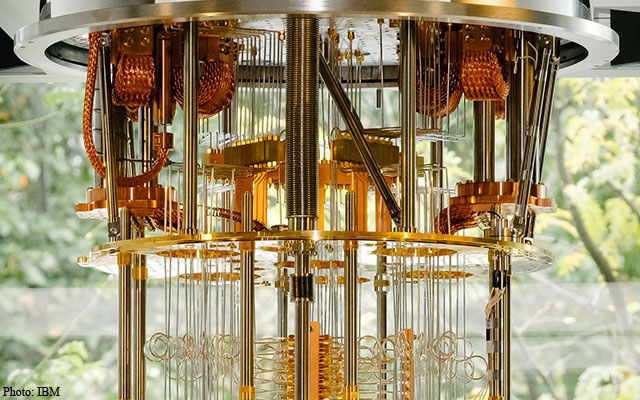IBM announced Wednesday it will soon make a 53-qubit quantum computer available to clients of its IBM Q Network. The computing giant said the new system will be accessible via the cloud next month and become part of the company’s new Quantum Computation Center in New York State.
The Big Blue notes that its new system, which offers improved scaling, lower error rates as well as a new processor design, will allow its more than 150,000 registered users to run even more complex entanglement and connectivity experiments. In addition, the 53-qubit system is projected to be the largest available for external use yet.
“Our strategy, since we put the very first quantum computer on the cloud in 2016, was to move quantum computing beyond isolated lab experiments…into the hands of tens of thousands of users,” Dario Gil, director of IBM Research, said in a press release.
“In order to empower an emerging quantum community of educators, researchers and software developers that share a passion for revolutionizing computing, we have built multiple generations of quantum processor platforms that we integrate into high-availability quantum systems.”
IBM’s new quantum machine marks a major advancement from the last IBM Q quantum device with 20 qubits (units of quantum information that can simultaneously be a 0 and/or a 1 in weighted combinations). The company claims its fleet of quantum computers is currently composed of five 20-qubit systems, one 14-qubit system, and four 5-qubit systems. It also says that it has 80 commercial, institutional and academic partnerships in place.
It should be noted that when it comes to experimental quantum supremacy, the most advanced quantum chip currently is that of Google. The search giant has created a 72-qubit chip called Bristlecone. Some researchers believe – and this is where we start tiptoeing into miracle territory – that quantum computers with over 50 qubits may be capable of performing some tasks that are beyond the reach of even the most powerful conventional supercomputer.
It goes without saying that quantum computing remains largely experimental, but IBM noted that in the last 3 years its global community of users have run more than 14 million experiments through the cloud, and published more than 200 scientific papers.
- Bulenox: Get 45% to 91% OFF ... Use Discount Code: UNO
- Risk Our Money Not Yours | Get 50% to 90% OFF ... Use Discount Code: MMBVBKSM
Disclaimer: This page contains affiliate links. If you choose to make a purchase after clicking a link, we may receive a commission at no additional cost to you. Thank you for your support!




Leave a Reply